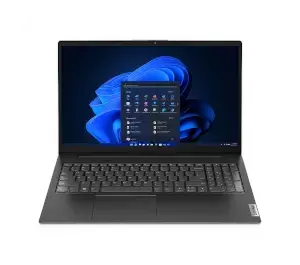Bachelor's Degree in Computer Engineering TechnologyOnline Bachelor's Degree Program
 Enroll in a Degree Program Now... Get a Laptop
Enroll in a Degree Program Now... Get a LaptopExplore our Programs
Learn to Identify, Analyze, and Address Complex Challenges With Your Computer Engineering Technology Degree from UA Grantham
The University of Arkansas Grantham Bachelor of Science Computer Engineering Technology degree program prepares students with the knowledge and skills for success as professional engineering technologists, specifically in the computing and computing technology fields. The curriculum establishes a solid foundation of skills in:
- Advanced circuit theory and digital design
- Microprocessor and programming
- Designing, testing and implementing computer and software systems in real-world environments
Bachelor of Science in Computer Engineering Technology Curriculum
As you look at your options for pursuing computer engineering degrees online, consider University of Arkansas Grantham’s 100% online coursework is designed to help working adults, like you, find educational success.
Program Core
General Education
Program Outcomes
- Select and apply the knowledge, techniques, skills and modern tools of the discipline to broadly defined engineering technology activities
- Select and apply a knowledge of mathematics, science, engineering and technology to engineering technology problems that require the application of principles and applied procedures or methodologies
- Conduct standard tests and measurements; conduct, analyze and interpret experiments; apply experimental results to improve processes
- Design systems, components or processes for broadly defined engineering technology problems appropriate to program educational objectives
- Function effectively as a member or leader on a technical team
- Identify, analyze and solve broadly defined engineering technology programs
- Apply written, oral and graphical communication in both technical and non-technical environments; identify and use appropriate technical literature
- Identify the need for and engage in self-directed continuing professional development, including the ability to identify strategies for acquiring competency in unfamiliar subject areas or skills
- Address professional and ethical responsibilities, including a respect for diversity
- Identify the impact of engineering technology solutions in a societal and global context
- Demonstrate a commitment to quality timeliness and continuous improvement
- Apply electric circuits, computer programming, associated software applications, analog and digital electronics, microcomputers, operating systems, local area networks and engineering standards to the building, testing, operation and maintenance of computer systems and associated software systems
- Apply natural sciences and mathematics at or above the level of algebra and trigonometry to the building, testing, operation, and maintenance of computer systems and associated software systems
- Analyze, design and implement hardware and software computer systems
- Apply project management techniques to computer systems
- Utilize statistics/probability, transform methods, discrete mathematics or applied differential equations in support of computer systems and networks
What Can I Do With an Online Bachelor Degree in Computer Engineering Technology?
As you go through our computer engineering technology program, you will develop skills to use in various business sectors including information technology, systems management, hardware and more. Also, once you receive your online BS in Computer Engineering Technology, you can continue your education journey with our various Computer Science degrees, including our Master’s in Information Technology.
What Businesses Benefit from Our Computer Engineering Technology Graduates?
- Computer Systems Engineering
- Computer Network
- Computer Hardware
- Information Technology and Management
- Computer Engineering Teaching and Training
Enrollment in the Bachelor of Science in Computer Engineering Technology program for the 2023-2024 Academic Year (July 1, 2023 to June 30, 2024) was 71.
Why Choose UA Grantham for Your BS in Computer Engineering Technology?
More transferability: Students can transfer in up to 75% of credits for this degree.
More affordability: UA Grantham has one of the lowest tuition rates in the U.S. and we provide a new laptop to all new and returning degree-seeking students—at no additional cost.
More start dates: Most courses in this program start monthly. It's easy to get started whenever you're ready.
More credibility: UA Grantham is accredited by the Distance Education Accreditation Commission (DEAC), which is listed by the U.S. Department of Education as a recognized accrediting agency and recognized by the Council for Higher Education Accreditation (CHEA).